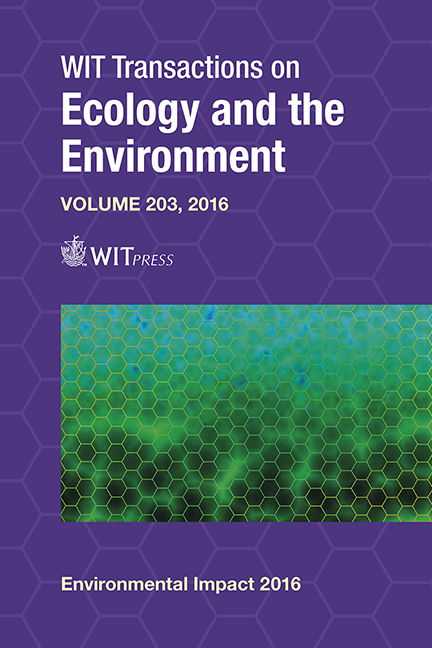Environmental Assessment Using Landscape Analysis Methodology: The Case Of The Jundiaí Mirim River Basin, Southeast Brazil
Price
Free (open access)
Transaction
Volume
203
Pages
12
Page Range
25 - 36
Published
2016
Size
941 kb
Paper DOI
10.2495/EID160031
Copyright
WIT Press
Author(s)
G. A. de Medeiros, B. V. Marques, F. H. Fengler, F. H. Machado, J. F. L. Moraes, A. Peche Filho, R. M. Longo, A. I. Ribeiro
Abstract
Environmental damage and impacts from anthropogenic activities has led to the need for methodological development for its evaluation to subsidize environmental and human health management models. In this context, landscape analysis is a technique that incorporates a set of methods and procedures for understanding and explaining the structure, properties, indexes and parameters influenced by the occupation and use of the land. The main goal of this research was to present an environmental assessment methodology to represent the landscape, in simplified form, in order to identify environmental damage and impacts, to establish criteria and to propose management models for the Jundiaí Mirim river basin, São Paulo state, Brazil. This approach integrates fundamental methodological procedures through compartmentation, stratification, highlighted elements, characterization and evaluation of the landscape, considering physical, biotic and anthropogenic indicators. The results show its potential for educational, research and extension proposals because of its simple and expeditious character. Therefore it was possible to obtain a landscape efficiency index, clear and objective, that promoted the understanding of the landscape. As guidelines for the river basin management we highlighted soil conservation plans, solid waste management and sanitation in urban areas, and land use planning to protect the supply reservoir of Jundiaí city.
Keywords
environmental impact, environmental management, planning





